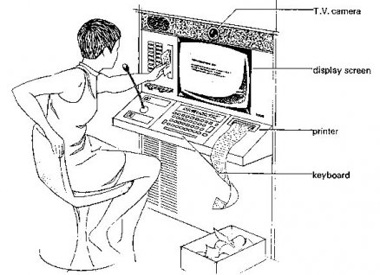When one looks at the prime assets of the Nokia of five years ago, it’s alarming to see how many have been discarded. At the turn of the decade, the Finnish giant boasted a formidable reputation for reliability, security and ease of use. Now it’s thrown all three out of the window, with security being the last to go.
The diminishing reliability of these devices isn’t unique to Nokia, and it may be a consequence of having so many products, in so many markets, all at once. But engineers deep in Nokia we’ve spoken with describe how they grew weary at being conditioned only to fix a proportion of bugs. It offends an engineer’s pride to release a flawed product, but this became a way of life. There was simply too much to do.
As for usability, the company which pioneered an interface that helped popularize the digital mobile phone – NaviKey™ – now falls far behind much of the competition. With feature phones, Nokia’s interface has failed to evolve with the tactile and graceful interface of Sony Ericsson, for example.
At the high end, the story is far worse. The S60 UI initially provided Nokia with a clever bridge to the future, but it looks pedantic and cumbersome besides Motorola’s MotoRizr 8, let alone Apple’s iPhone. Nokia answers the perennial S60 user’s question, “Why so many clicks?” by adding extra hardware buttons, such as the slow and inflexible “Multimedia” key. S60 is incredibly poorly written in parts, but Samsung has demonstrated that it doesn’t have to be sluggish, by using its own chip to speed up its first European S60 phone. Yet Nokia has ensured most of its smartphone users have a substandard experience, by starving the devices of sufficient memory or fast enough processors.
It doesn’t augur well that the company’s skill at exploiting the emerging markets owes little to its recent R&D work: it’s succeeded with low cost models in China by dusting off older, more reliable, and easier-to-use technologies. In other words, it’s living off past glories, rather than looking to the future.
In fact, Nokia now appears to quite relish the complexity of its devices. Quite bizarrely, a company which had no need for an inferiority complex appears to have acquired one.
Read more
 My US colleagues are regulars on John C Dvorak’s excellent Cranky Geeks and a highlight of the show. I was recently intrigued to hear the opinion from Vulture West Coast (in Episode 232) that RIM was toast, and Android would triumph. Now, bearing in mind that I’ve been wrong about mobile more than I’ve been wrong about anything else – quite epically and unheroically wrong – I beg to differ.
My US colleagues are regulars on John C Dvorak’s excellent Cranky Geeks and a highlight of the show. I was recently intrigued to hear the opinion from Vulture West Coast (in Episode 232) that RIM was toast, and Android would triumph. Now, bearing in mind that I’ve been wrong about mobile more than I’ve been wrong about anything else – quite epically and unheroically wrong – I beg to differ. 

